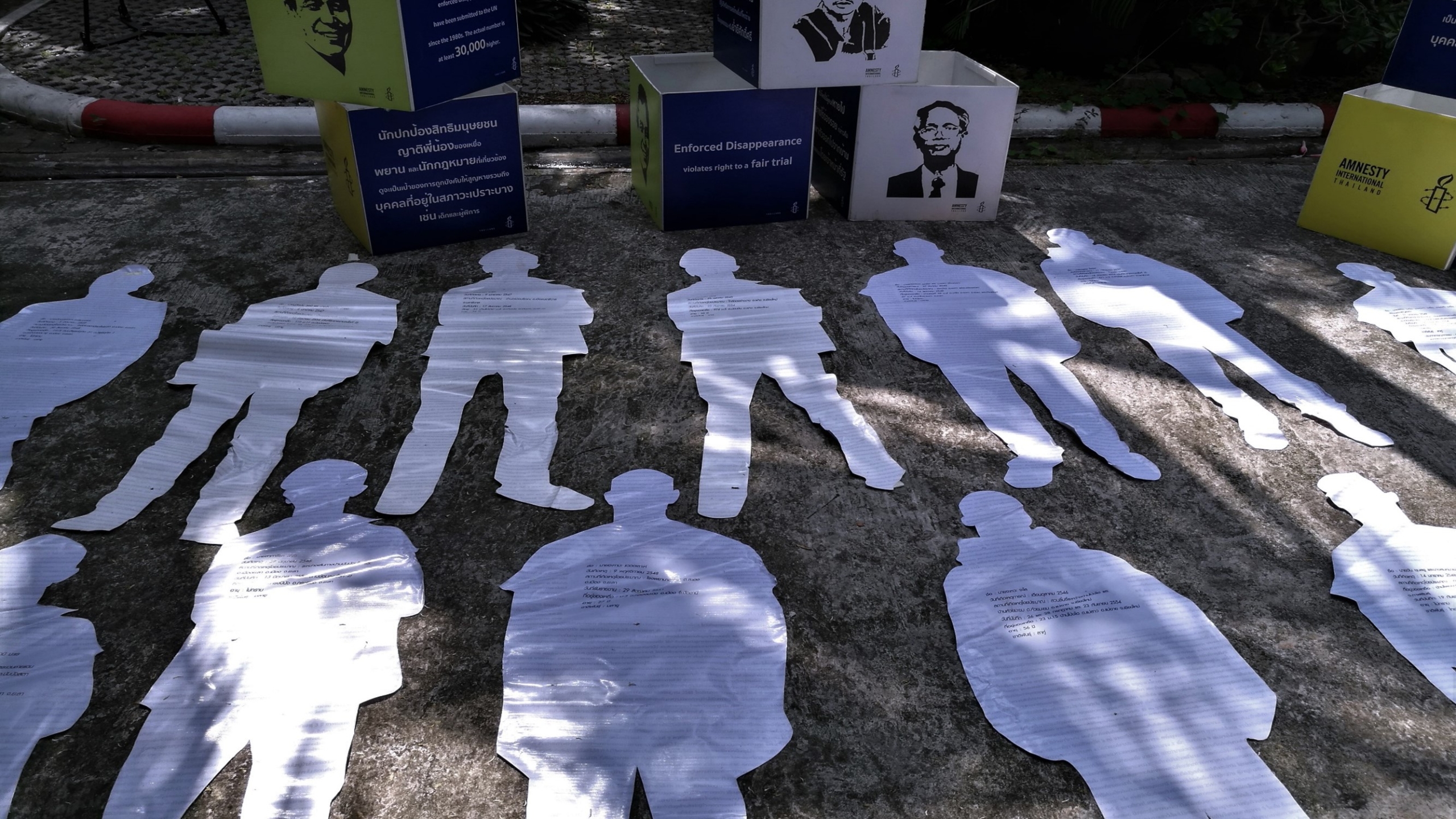A Joint Statement byAsian Federation Against Involuntary Disappearances (AFAD), Asian Forum for Human Rights and Development (FORUM-ASIA), International Coalition against Enforced Disappearances (ICAED), International Federation for Human Rights (FIDH), Maayer Daak and Odhikar Odhikar on the occasion of International Week of the Disappeared 2024
Bangkok/Dhaka/Geneva/Manila/Paris; 27 May 2024: We, the undersigned organisations, are deeply alarmed by the ongoing commission of enforced disappearances in Bangladesh and the inability of victims to access justice. We also express serious concerns regarding the plight of the victims, the impunity of security forces, and the lack of due process and judicial safeguards for victims and their families.
Ever since the incumbent government came to power in 2009, acts of enforced disappearance have become widespread. Among the disappeared victims, some persons were released after being kept incommunicado, and many were handed over to the police or produced before a court after being implicated in trumped up charges under different criminal laws. Others remain disappeared or were found dead. The government of Bangladesh has systematically allowed law enforcement agencies and security forces to use enforced disappearance as a tool to suppress political opposition and silence dissenting voices, creating a climate of fear.
Over the past decade, incidents of enforced disappearances have increased prior to the general elections, targeting opposition party leaders and activists. In the 12 months before the latest general election, which was held on 7 January 2024, Odhikar documented 54 cases of enforced disappearance, up from 21 in the same period in 2022.
In recent years, particularly after the US designated sanctions on the Rapid Action Battalion (RAB) in 2021, a large majority of the disappeared persons were victims of short-term disappearances, some of whom were reportedly tortured while in custody. This has become a systematic pattern in the country to silence the political opposition and dissidents. Members of law enforcement and intelligence agencies enjoy impunity for the commission of enforced disappearances. The persistent denial of the government that enforced disappearances occur and its refusal to determine the fate and whereabouts of the disappeared persons clearly indicate the government’s unwillingness to address this serious violation of human rights.
The families of the disappeared suffer immeasurable psychological, socio-cultural and economic loss. In fact, the impact of enforced disappearances on the families is immense and include violations to the rights to food, health, education, the right to take part in cultural life, to social security, to property, and the right to family life. Family members of the victims of enforced disappearances have also been subjected to surveillance, intimidation, harassment and threats by members of law enforcement and intelligence agencies. The resurfaced victims of enforced disappearance and their family members do not speak about their experience, out of fear of reprisals.
Due to the patriarchal nature of Bangladeshi society, where all identity depends on the father/husband as head of the family, the women and children are often stigmatized. Victims’ sons and daughters face problems in getting admission in schools, colleges and universities. They often become victims of bullying and the families are often rejected by landlords who do not want to be associated with women and children of victims.
Since a large majority of the victims of enforced disappearance were known to be the breadwinners for their families, the families have been living in miserable conditions. The economic hardship has a detrimental impact on the social, mental and physical well-being of the families of the disappeared; and on their ability to search for their loved ones. It also hampers the fulfilment of other rights such as the rights to education, health and shelter.
Bangladesh has not ratified the International Convention for the Protection of All Persons from Enforced Disappearance (ICPPED) and the laws of Bangladesh have not defined or criminalized enforced disappearance. Taking advantage of this gap in the legal framework, the government continues to deny such crimes are taking place and victims of enforced disappearances, and their relatives alike, have consistently been denied access to justice. The courts have been unable or unwilling to provide remedies to victims’ families. None of the writ petitions filed under Habeas Corpus in the High Court Division of the Supreme Court have progressed far beyond the filing. The continuous lack of response from the government of Bangladesh to the repeated calls for investigations, made by the families of the disappeared and civil society organisations, have made seeking justice even more difficult. Regrettably, the Bangladesh government has repeatedly ignored the clear and tangible pathways laid out by UN human rights experts for the Bangladesh government to remedy a pattern of grave abuses.
We urge the UN Human Rights Council to use all tools at its disposal to pressure the Bangladeshi authorities to end enforced disappearances. UN human rights experts, including the Working Group on Enforced or Involuntary Disappearances (WGEID), must be given access to the country to assess the situation of enforced disappearances and assist the victims.
On the occasion of the International Week of the Disappeared, we call on the government of Bangladesh to accede to the ICPPED, recognize the competence of the UN Committee on Enforced Disappearances, and adopt a national legislation criminalizing enforced disappearances.
Organisations signed:
1. Asian Federation Against Involuntary Disappearances
2. Asian Forum for Human Rights and Development
3. International Federation for Human Rights
4. International Coalition Against Enforced Disappearances
5. Maayer Daak
6. Odhikar




